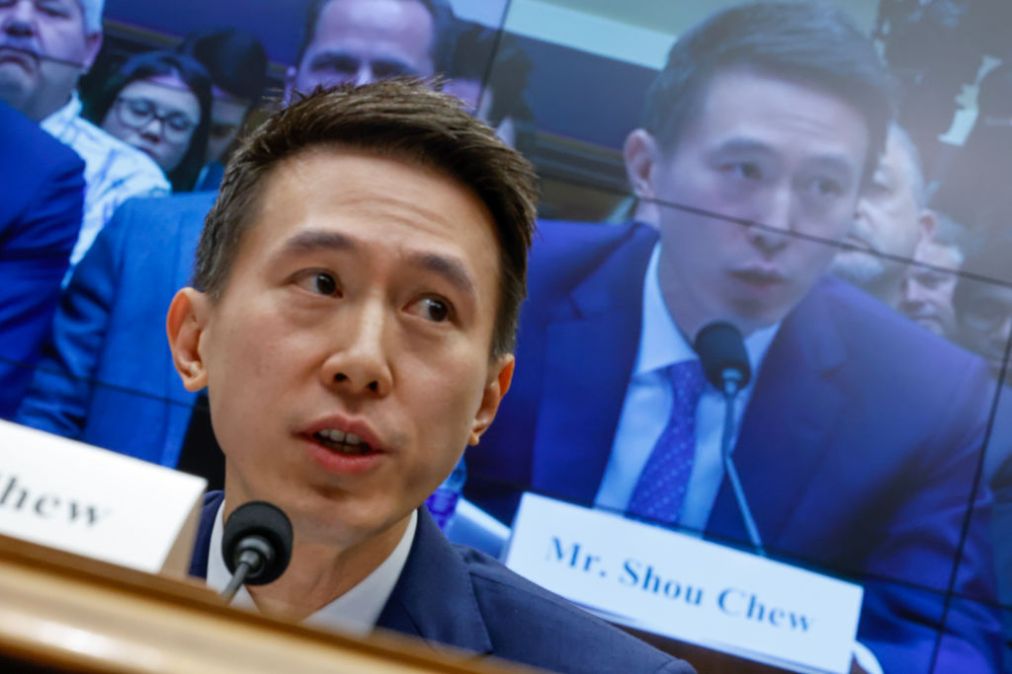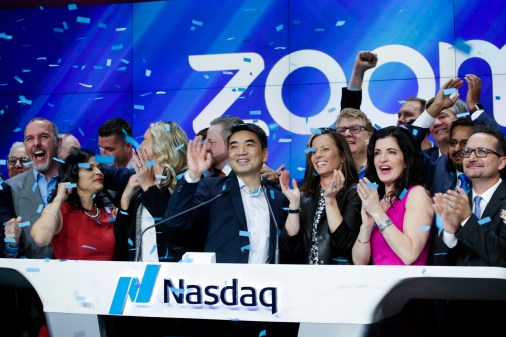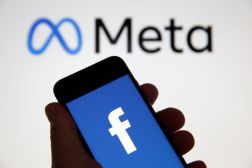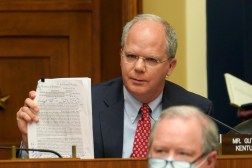Five brutal hours for TikTok: CEO raked over coals amid privacy, security concerns

Congressional lawmakers sharply questioned whether a plan drafted by TikTok to wall off its American operations is sufficient to address privacy and propaganda concerns during a hearing Thursday that featured more than five hours of combative questioning of TikTok CEO Shou Zi Chew.
Thursday’s hearing before the House Energy and Commerce Committee represented a landmark moment in TikTok’s attempt to build support for a $1.5 billion plan — known as Project Texas — that relies on tech giant Oracle to operate the app’s American technical infrastructure and build a firewall between U.S. TikTok users and Beijing.
But in a highly anticipated appearance, Chew won few, if any, allies, and the hearing instead offered a clear view of the bipartisan consensus in Washington that TikTok poses a security and privacy threat.
“We do not trust TikTok will ever embrace American values — values for freedom, human rights, and innovation,” Chairwoman Cathy McMorris Rodgers, R-Wash., said in her opening statement. “Your platform should be banned.”
Whether due to its ties to China or its invasive privacy practices, lawmakers at Thursday’s hearing were nearly unanimous in arguing that TikTok has failed to prove that it can be a responsible steward of American data. Lawmakers grilled Zhou on TikTok’s use of biometrics and precise geolocation data, neither of which Chew said the app collects, and questioned the executive on a range of social media harms, from dangerous misinformation to children’s mental health to racial bias.
Chew faced particularly sharp questioning over reports that ByteDance employees accessed TikTok user data to spy on two journalists. That incident, which is now being investigated by the Justice Department, sparked repeated questions about whether the Chinese Communist Party is using TikTok to spy on Americans. Chew, who was routinely cut off in trying to offer detailed answers, said that the incident was an isolated one, limited to a small group of employees who were investigated and fired. Chew denied that ByteDance, the Chinese parent company of TikTok, has spied on Americans at the direction of the CCP.
Several members suggested that Chew left them with more questions than answers and failed to deliver on his promises to be transparent. “You have repeatedly used the word transparency throughout this hearing and every time you’ve said it I hear deception,” said Rep. Gary Palmer, R-Ala.
That distrust extended to TikTok’s technical architecture. Chew’s publicity tour in Washington is aimed in large part at building support for Project Texas, which TikTok has pitched to the Committee on Foreign Investment in the United States as a way to end a drawn-out review of the app’s presence in the United States and address concerns that China might influence what content users see on the app or collect U.S. user data. But lawmakers were skeptical that a technical firewall would be enough to keep meddlers out.
“It’s nearly impossible to wall off data,” Rep. Russ Fulcher, R-Idaho, noted. “What you’re saying about Project Texas just doesn’t pass the smell test,” said Rep. Angie Craig, D-Minn. Rep. Jay Obernolte, R-Calif, questioned what would prevent ByteDance engineers from taking the source code and copying it. Rep. Bill Johnson, R-Ohio, claimed that the app was “riddled with backdoors” for the CCP.
There has been no public audit of TikTok to support the claim about backdoors, and many of the concerns about how Beijing might manipulate TikTok or violate user privacy remain hypothetical.
Nonetheless, a Chinese law mandating that domestic companies hand over data at the state’s request, Beijing’s iron grip on the country’s tech sector and known instances of censorship on the app — such as suppressed content about events in the Xinjiang region and anti-China protests in Hong Kong — has created immense distrust of TikTok in Washington. Chew downplayed the incidents, insisting the app has no policies to suppress such content and repeatedly reaffirmed that TikTok is not in any way beholden to the CCP. Moving U.S. user data to Texas, he argued, would eliminate any threat posed by the Chinese law.
But against the backdrop of growing concern in Washington about the need for the United States to be more technologically competitive with Beijing, TikTok has emerged as a central flashpoint in the debate over how to counter the perceived threat from Chinese technology.
“The national security implications are too much to play footsie with in a circumstance like this, where you have 150 million users in the United States of America,” Rep. Yvette Clarke, D-N.Y., told CyberScoop.
Chew’s evasive or indirect answers to the most blunt questions about TikTok’s relationship with Beijing did little to help assuage these suspicions. When asked by Rep. Debbie Lesko, R-Ariz., whether he would agree that the Chinese government has persecuted Uyghur minority in China, Chew demurred that “my role here is to explain what our platform does.” TikTok’s head of policy, Michael Beckerman, refused to answer a similar question during a December appearance on CNN.
While Chew failed to sign up any backers for Project Texas, that doesn’t mean a ban is inevitable. There’s a growing push from free speech advocates against such a move, and a lack of satisfying technical answers at Thursday’s hearing could lead to follow-up hearings.
Sen. Mark Warner, D-Va., the chairman of the Senate Select Committee on Intelligence, and Sen. John Thune, R-S.D., said the hearing only underscored the need for their recently introduced legislation that would empower the White House to ban TikTok and other foreign apps posing a risk to Americans’ data.
“It is vital for Congress to establish a process to review and mitigate the harms posed by foreign technology products that come from places like China and Russia,” the pair said in a statement. “We are encouraged by the quick momentum and strong bipartisan support for our legislation and expect that it will only grow following today’s testimony.”
Several members expressed the need for Congress to take a more comprehensive approach and pass federal privacy legislation — something the body tried and failed to do last year.
“Public outrage and hollow apologies alone are not going to rein in Big Tech. Congress has to enact laws protecting the American public from such online harms,” said ranking member Rep. Frank Pallone, D-N.J. “We simply cannot wait any longer to pass the comprehensive privacy legislation.”






